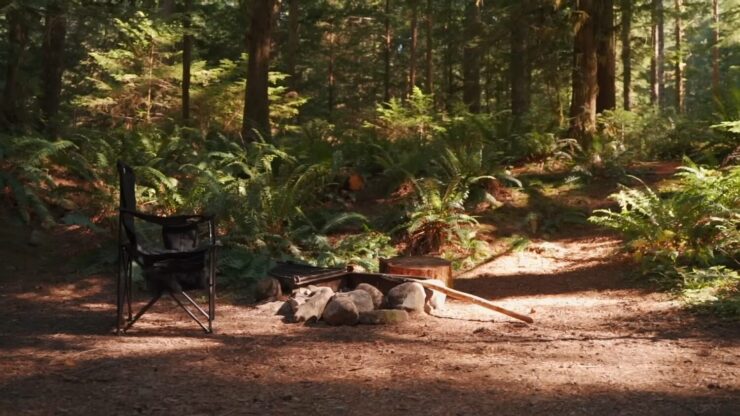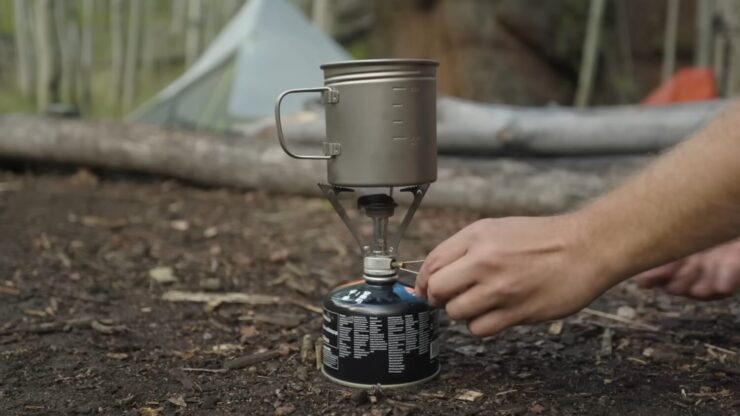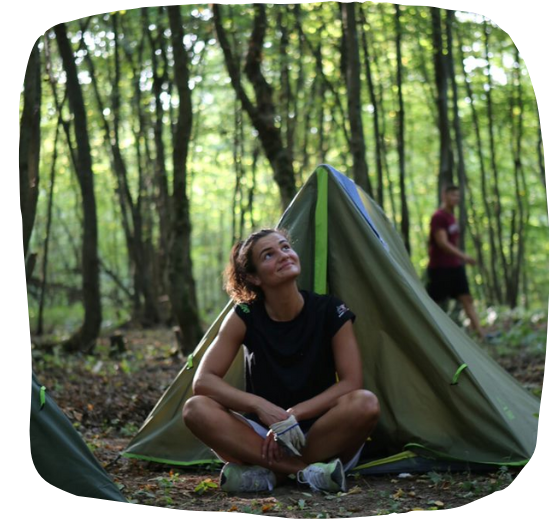Camping is one way to take a break from stress. The activity fuels your body and mind and, in most cases, is a medium to connect with friends, family, and nature.
However, while camping life differs from regular everyday living, there’s a constant: cooking. Whether setting up a tent in a remote area or driving lone roads in a van, you must eat food.
You don’t have to consume junk simply because you’re not in your home kitchen. With the correct camp cooking kitchen essentials, you can prepare wholesome meals for everyone.
In that regard, below are what you need:
Contents
1. Camp Stove and Fuel
First things first, you must decide on what you’ll prepare your food with. At home, you most likely use an electric or gas stoke. While camping, these options can also work, but you must consider some factors.
The type of camping is primary. If you’re in a van, an electric stove or gas can work — which you don’t need to carry yourself. You can even go for a tabletop cooking solution, as RVs typically have space to accommodate them.
But if you’re backpacking, definitely, you can’t fit a heavy stove among your belongings. You’ll have to settle for a lighter cooking option. Also, carrying an electric stove can be useless when visiting a remote area without utility poles.
For backpackers, then, the best fuel options are canisters, including propane, butane, and isobutane. If you have space, you can opt for liquid such as white gas, gasoline, or kerosene.
Another deciding factor here is the number of people on the trip. Clearly, you’ll need a more sustainable option if you’ll be serving many plates when the meal is done.
2. Cookware and Utensils
Here, you have to pick the vessels you’ll prepare the food in. It’s simple, you’ll agree, to grab pots, spoons, bowls, and knives from your kitchen cupboard and throw them into your camping luggage. However, your trip type will decide.
The number of people camping plays a more central role when choosing cookware. There’s no point carrying a big pot or many plates if you’re just three going on the trip. On the other hand, it’ll make sense if your group is up to 10 or 15.
Going into more detail, you should factor in material type when picking cookware and utensils. The best option is to opt for nonstick-coated items. Why? They’re much easier to clean and will save you time.
Furthermore, consider collapsible cookware, especially if you’re backpacking. Such types will help you save space.
3. Cooler and Water Jug
If you’ll be staying out camping for long, a cooler and water jug are must-haves. You need them to keep your food items safe, free from spoilage. The essence of packing cooking utensils means you’ll be preparing actual meals. For that, you’ll need many food items, some of which may be perishable.
Meats, vegetables, eggs, dairy, and fruits are examples. If these go bad, you won’t be able to replace them if you’re in a remote place.
With a cooler, you can preserve these perishable food items, ensuring they are in good condition while your trip lasts. Similarly, with some ice blocks, you employ a cooler to keep your drinks chilled.
The water jug, its job is to ensure you always have clean water to digest your food. Most often than not, clean water sources are hard to come by when far off urban areas.
You’ll also find usefulness for a jug when preparing your meals. For example, it can serve as a measurement device for adding just the right amount of water into the cooking pot.
4. Food Storage
Like storing fresh food items in a cooler, you should also make reservations to protect your meals after cooking. You can skip this option if you have a refrigerator among your camping materials — but that’s unlikely.
Cooking isn’t the sole reason you decided to camp, so you’ll be occupied with other activities most of the time. With a dependable storage option, then, you can cook large meal quantities and preserve them for long periods. You can always reheat them when you next want to eat.
Simple options for storing prepared foods include airtight containers, resealable plastic bags, and takeout containers. Generally, ensure your storage options have tight-fitting lids or seals.
It’ll help to put some tags or labels on the food containers and bags, especially if you’re making different meals. That way, you won’t mix one for another.
Indeed, storage containers and bags are essential, but that doesn’t mean keeping cooked for long is ideal. Ensure to eat your prepared meals within a reasonable time frame — a few days, for example.
5. Camp Table and Tableware
Finally, you must pack some tableware, else eating the food you prepare becomes inconvenient. Tableware here refers to plates, cups, spoons, etc. You should consider size, weight, and material when picking these items.
Generally, you’ll want options that are not too big, heavy, and are not easily breakable. In that case, tableware made with glass and ceramic won’t fit the equation.
For the camp table, ease of use comes first. It’s typical to opt for a foldable one for space reasons, but if you’re in a van, you can also consider a picnic or tailgate table.
As you enjoy your meals at the camp table, you can spice things up with a TV screen. The idea of carrying television to camp seems excessive. However, if you have a power source and space, you can bring one along.
The only factor to worry about is protecting the screen from outdoor elements. But that, too, is solvable with a TV lift. Click here to check out some outdoor TV lifts you can opt for.
Conclusion
Enjoying delicious meals while away camping is not impossible. All you need is the proper kitchen utensils and ingredients, and you’re good to go. As highlighted in this post, you’ll need a camp stove, cookware, cooler, water jug, storage containers, and tableware. You can get portable versions of the listed items, so your camping remains burden-free.



